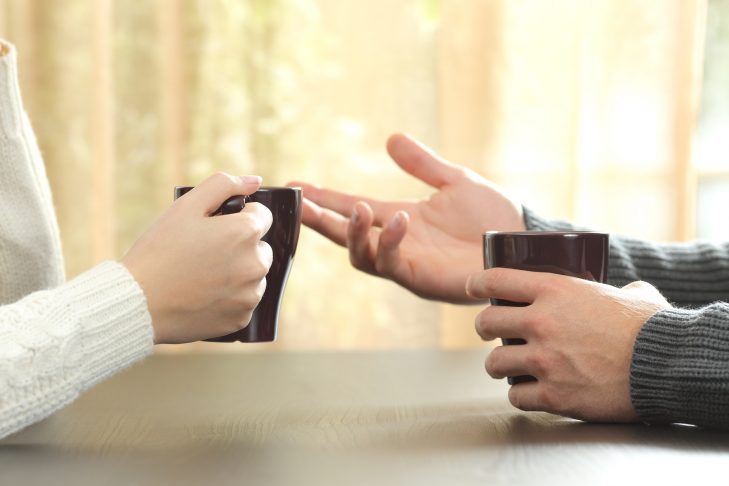It often feels like the world is going crazy, and against that backdrop it can be hard to look after our own mental health, let alone the people around us. We have been living through immensely difficult times: a violently divided country, rising levels of hate and prejudice, a global pandemic, the horrific terrorist attack of Oct. 7. It has been relentless—the sense of fear, uncertainty, and despair are palpable.
We believe that a synagogue community is a place where people find belonging, meaning, and support—in a way that is different from any other place in their lives—so we felt it important to take a weekend to focus on our community’s mental health. In partnership with Jewish Family Service of MetroWest, we brought Dr. Betsy Stone to Temple Shir Tikva to speak, hold space, and teach our congregation and the wider community. Betsy, a retired psychologist, has established herself as the Jewish community’s leading thinker on how we can respond to trauma, protect our mental health, and develop resilience in ourselves and our children.
Within one extended weekend, we made sure to engage with as many groups as possible within our Temple Shir Tikva community and beyond. There were sessions for our staff team, local clergy, the Boston-area teen engagement and education network (with lunch provided by JTI, powered by CJP), parents, grandparents, and teachers within our TST Early Learning Centers and Hineini/AISH K-12 learning programs. These were supplemented by programs open to the wider community focusing on protecting our own mental health in a crazy world, post-traumatic growth, and resilience and our children’s mental health.
Betsy immediately felt like part of the family—someone with whom we could share vulnerability and struggles, ask hard questions, and workshop possible responses and next steps. Our rich conversations—from a Shabbat dinner talk about recognizing spiritual moments as a form of post-traumatic growth; to Torah study where we considered whether or not we let God off the hook in addition to letting ourselves off the hook; to the question of whether empathy is familial and tribal because we feel others’ suffering within ourselves while sympathy is more universal because we can recognize others’ suffering—allowed us to take time to discuss, reflect, and consider our behaviors and actions.
We learned what happens in our brains and bodies when we experience fear, grief, or trauma and how our typical verbal responses to others who are in distress, while completely well-meaning, are ineffective. We talked about the difference between stress and anxiety and how fear is a useful emotion that can be experienced as wisdom. We considered the difference between transactional and relational spaces and discussed how Jewish spaces are primed for critical thinking and impossible questions.
One of the most striking things to us in these sessions was how you could see everyone in the room nodding as Betsy spoke. Whatever the specific subject she tackled, her words resonated with her audience. There is a mental health crisis in our country, and we are not talking about it nearly enough. Betsy’s talks and sessions allowed people to feel truly seen in the struggles of living through this current moment, and the space she created provided an important opportunity to challenge the silence and destigmatize talking about our mental health.
Across the age groups and different affinity groups in our community, the feedback included:
- “This was exactly what I needed.”
- “I can immediately put into practice the wisdom she shared.”
- “When can she come back?”
A weekend focusing on our mental health is just the beginning and many of the takeaways from our time with Betsy will inspire us to continue conversations, take care of ourselves, and support each other.
Two of the questions Betsy posed that we are still thinking about as we move forward, fortified by her wisdom, are:
How many times can we say Shehechiyanu (the blessing of gratitude for arriving at a particular moment in time) in one day?
What does mental health ACTUALLY mean? In the same way that we, as a congregation, as a movement, as a people, constantly adapt and grow our definitions of community, belonging, educational vision, synagogue mission, Betsy urged us to hone in on our own definition of mental health. As with any endeavor, if we cannot define our goals and set our intentions with clarity, it will be more difficult to think of and enact the next steps on our journeys.
This post has been contributed by a third party. The opinions, facts and any media content are presented solely by the author, and JewishBoston assumes no responsibility for them. Want to add your voice to the conversation? Publish your own post here. MORE


